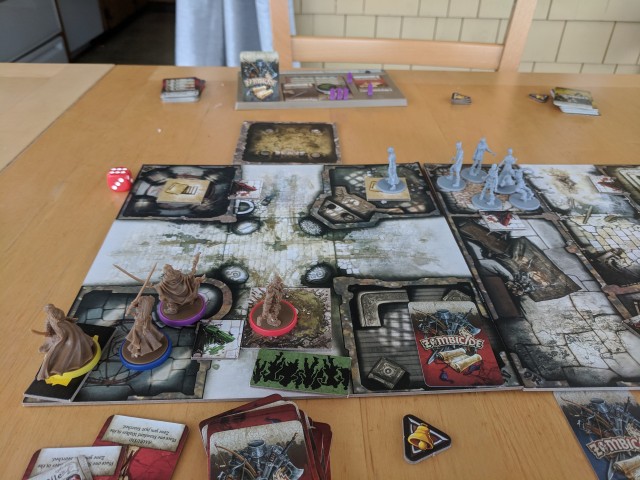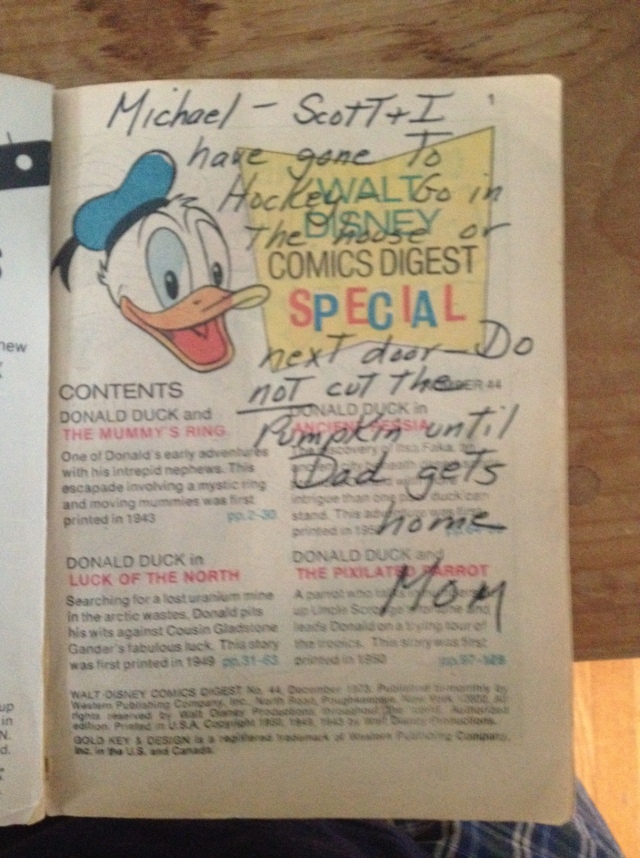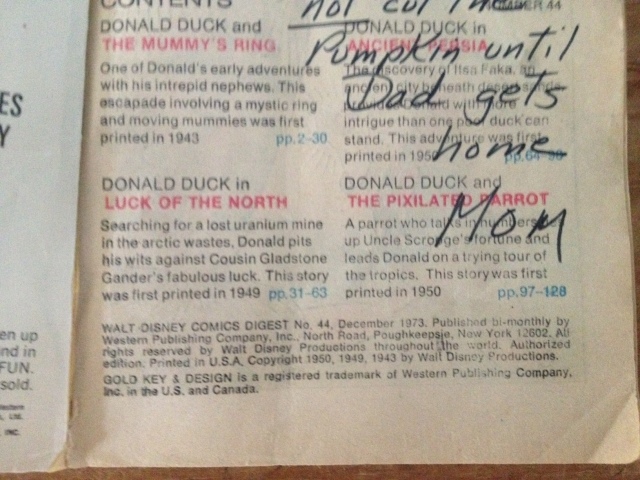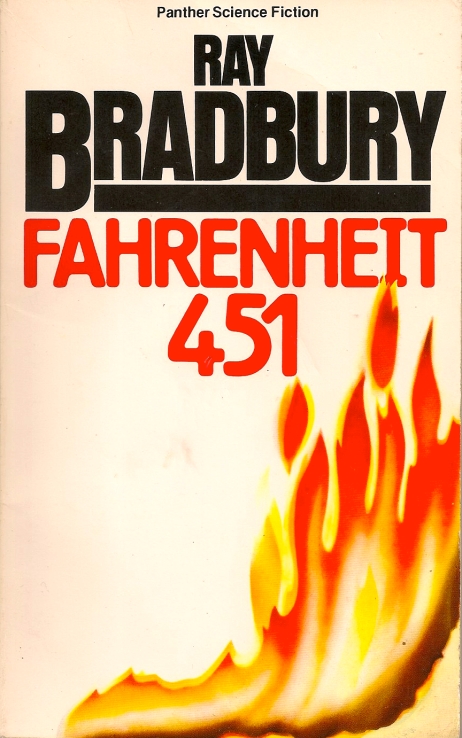Despite the creepy title and theme, this is a good family game. It’s creepy, tactical, and very cooperative. We played the morning, and I love it!

Despite the creepy title and theme, this is a good family game. It’s creepy, tactical, and very cooperative. We played the morning, and I love it!

 I am currently reading, Les Miserables, by Victor Hugo. Nobody writes quite like this guy. He comes from an era before the mass media (although newspapers did exist), and therefore he takes on the role of writer, professor, and the internet all in one person.
I am currently reading, Les Miserables, by Victor Hugo. Nobody writes quite like this guy. He comes from an era before the mass media (although newspapers did exist), and therefore he takes on the role of writer, professor, and the internet all in one person.
Anyway, as it is now early spring, I was taken with the gorgeous passage describing a single, overgrown garden in Paris:
“…In Floreal this enormous thicket, free behind its gate and within its four walls, entered upon the secret labor of germination, quivered in the rising sun, almost like an animal which drinks in the breaths of cosmic love, and which feels the sap of April rising and boiling in its veins, and shakes to the wind its enormous wonderful green locks, sprinkled on the damp earth, on the defaced statues, on the crumbling steps of the pavilion, and even on the pavement of the deserted street, flowers like stars, dew like pearls, fecundity, beauty, life, joy, perfumes. At midday a thousand white butterflies took refuge there, and it was a divine spectacle to see that living snow whirling about there in flakes amid the shae. There in those gay shadows of verdure, a throng of innocent voices spoke sweetly to the soul, and what the twittering forgot to say the humming completed. In the evening, a dreamy vapor exhaled from the garden and enveloped it; a shroud of mist, a calm and celestial sadness covered it; the intoxicating perfume of the honeysuckles and convolvulus poured out of every part of it, like an exquisite and subtle poison; the last appeals of the woodpeckers and wagtails were audible as they dozed among the branches; one felt the sacred intimacy of the birds and the trees; by day the wings rejoice the leaves, by night the leaves protect the birds.
In winter the thicket was black, dripping, bristling, shivering, and allowed some glimpse of the house. Instead of flowers on the branches and dew in the flowers, the long silvery tracks of the snails were visible on the cold, thick carpet of yellow leaves; but in any fashion, under any aspect, at all seasons, spring, winter, summer, autumn, this tiny enclosure breathed forth melancholy, contemplation, solitude, liberty, the absence of man, the presence of God; and the rusty old gate had the air of saying: “This garden belongs to me.”
It was of no avail that the pavements of Paris were on every side… forty years of abandonment… had sufficed to restore to the privileged spot ferns, mulleins, hemlock, yarrow, tall weeds, great crimped plants, with large leaves of pale green cloth, lizards, beetles, uneasy and rapid insects; to cause to spring forth from the depths of the earth and between those four walls a certain indescribable and savage grandeur; and for nature, which disconcerts the petty arrangements of man, and which sheds herself always thoroughly where she diffuses herself at all, in the ant as well as in the eagle, to blossom out in a pretty little Parisian garden with as much rude force and majesty as in a virgin forest of the New World.
Nothing is small, in fact: anyone who is subject to the profound and penetrating influence of nature knows this…”
(Victor Hugo, 1862)
 Does anyone want to help with a little web-based hunt?
Does anyone want to help with a little web-based hunt?
 So Ray Bradbury’s dark vision of an illiterate society, as described in Fahrenheit 451, has not to pass in the USA. Books were never banned, at least not here. I know there are many other countries where books are heavily censored. In fact, just recently, the Chinese Communist government was accused of kidnapping several Hong Kong booksellers.
So Ray Bradbury’s dark vision of an illiterate society, as described in Fahrenheit 451, has not to pass in the USA. Books were never banned, at least not here. I know there are many other countries where books are heavily censored. In fact, just recently, the Chinese Communist government was accused of kidnapping several Hong Kong booksellers.
But here in America, we have plenty of reading choices. You can buy books about just about everything. There are books about politics, books about religion. You can find books about overthrowing governments and books about sex. You can buy porn, horror and experimental books about nothing at all. Very little is off the table.
In that sense, you could argue that the novel could be dismissed as being anachronistic. Is this day and age of computer viruses, data hacking, cameras in every phone, GPS tracking, and terrorist organizations who use Youtube, who really thinks of books as any sort of threat? Books have been replaced, outsourced, and outstripped by the new media. And yet… somehow, Fahrenheit 451 still feels relevant. And here’s why: if you take away the most sensational aspect of the novel- that of banned books and book-burning- F 451 does a great job of holding a mirror to a consumer culture that is driven by distraction.
Two of the most telling moments of the novel are small moments. In one of them Guy Montag tells his wife, Mildred, that he feels lost and empty, that he has a sense that something is wrong with life, but does not have the ability to articulate it. Mildred offers him some advice. The suggests that he should take the car and drive really fast in the countryside. She says she does it sometimes when he’s not around and the high speeds invigorate her. Even better, she sometimes hits dogs or rabbits, and that’s thrilling too. This disturbing call to violence and speed is how Mildred distracts herself.
In another sequence, Montag, on the cusp of dropping out of society, is trying to memorize a bit of the Bible on the subway. As he reads the same line over and over again (It’s: Consider the Lilies of the Field), a commercial keeps playing on the subway’s speaker system, advertising Denham’s Dentifrice (Dentifrice is an old fashioned word for toothpaste). This passage soon becomes a battle with Montag speaking louder and louder, trying, in his own verbal way, to defend himself from the wash of advertising.
Even though F451 was published in the early 50’s, a time when our culture was far less tolerant of violence and sensation in the Media, he somehow managed to predict our own age of infinite distraction. Our media landscape is disproportionately dominated by references to sex scandals, interpersonal violence, fear-mongering, and a constant flow of plaintive social-media. Thus the nightly news will devote 30 seconds to a topless bike ride in Seattle, 30 seconds to a video showing a teacher spanking a child in Texas, 30 seconds to a social media faux pas committed by a TV star, and 30 seconds to a the loss of 2,000 jobs in, say, Ohio. Only one of those is likely to affect the lives of tens of thousands of people, but the newshour gives them each equal weight in terms of coverage.
The constant display of the embarrassing, the sexually charged, the violent, the revolting, the terrifying becomes a festival of distraction. You don’t have to drive around in a car and run over rabbits. You can just watch video of someone else doing it and then- like looking into the infinite recession of two mirrors facing each other- you can view the social media’s reaction to it, and the social media’s reaction to that reaction and so on…
And if you are a reader like me, you already have empathy for poor Guy’s attempts to memorize part of a book in a public space, because thanks to the ubiquity of TV screens, cell phones, and tablets, it had become harder and harder to find quiet spaces. Every other time I’m on the bus, I am “treated” to someone else’s music, usually streamed from their cell phone. Libraries have more computers, bringing in more folks who will congregate, camp-out and chat. Many restaurants now feature TV’s in corners, above the bar, and even (sometimes) in booths. And if they don’t have TV’s, people will bring in their tablets, and you have a chance of sitting next to some kid who is happily play a noisy video game.

But, in some ways, this is just the skin of the issue. In my case, I feel like F451 issues a personal challenge of sorts. The book asks of us: Can one live a life without distraction, or at least with, less distraction, and here we need to once again return to Bradbury’s saddest character, Mildred. As we discover in the beginning of the book, Mildred is horribly, frighteningly unhappy, but she lacks even the tools to understand that she is unhappy. To her, life must be a series of distractions, provided by high speed driving, sleeping pills, a TV room (where all four walls have screens), and sensational TV shows (Like a show that consists mostly of clowns chopping each other apart with axes). And so Mildred is deeply disturbed and sad, and she doesn’t quite understand it. She might be able to dig herself out of her hole, but she assumes that her hole is the entire universe.
In some way, Mildred’s problem becomes the most vital part of the book. It reminds us that our own challenges are personal. How much do we dwell in our own holes, and how much do we distract ourselves from this? Do Facebook feeds keep us from having to regard important personal issues? Does the infinite ability to conjure up content on our cell phones keep us from better, more valuable work? Does giving our children access to video games take away time that might be spent on working, failing, succeeding, and creating real things?
The answers to these questions, of course, are complicated, but worth considering. Like the case of poor Mildred, does the roar of the Media, and the culture of noise, and the culture of shopping offer so much distraction that one need never grapple with one’s true nature? Does the attraction of a Hi-Def screen keep us from sitting outside and listening to the birds at sunset? Do we see less of our own home and neighborhood? Do we better know our own town, or do we better know the virtual world? We can debate all these things, and indeed there are ongoing debates and discussions, but it would be a bad idea to ignore the question of distraction that Bradbury posited over 60 years ago.
2015 has been my year for reading contemporary fantasy including the Games of Thrones Series, Lev Grossman’s The Magician’s Land, The Rook (by Daniel O’Malley), as well as work by Joe Abercrombie.
I have not read so much fantasy since I was in my early 20’s, and it seems to have reawakened my taste for classic fantasy. I began to search around for a good fantasy series that was epic in style, but also somewhat more heroic in form than the other stuff I had been reading.
To that end, Robin Hobb’s Ship of Magic has served nicely. Like the aformentioned, it is well written, contemporary fantasy that does not blink in the face of grittiness or moral ambiguity, but it is more heroic and romantic in style than Game of Thrones. The plot is better structured than The Magician’s Land, and less bleak that Abercrombie’s First Law series. Additionally, the series is by a female author and features complex and well-thought-out female characters, both of which qualities are sometimes hard to find in the genre.
While not perfect, Ship of Magic came through for me. The story is strong and the characters (well, most of them) are compelling, and Hobb does a nice job of world-building, providing moments of empathy and understanding, as well as tricking and surprising us. The plot, like the sea serpents that haunt this book, has teeth and moves both above and below the surface. Continue reading
 I have not been blogging much lately, but there is a very good reason for this, which is that I am spending my time working on my new novel, The Xildjian Codes. The Xildjian Codes is a bit of a departure for me. It is neither a supernatural pulp thriller like VampCon, nor is it a collection of contemporary literary short fiction, like Bringing Ararat.
I have not been blogging much lately, but there is a very good reason for this, which is that I am spending my time working on my new novel, The Xildjian Codes. The Xildjian Codes is a bit of a departure for me. It is neither a supernatural pulp thriller like VampCon, nor is it a collection of contemporary literary short fiction, like Bringing Ararat.
Instead, it is a novel set in Eastern Europe that blends suspense and history, and might appeal to fans of David Benoiff’s “City of Thieves” or Alan Furst’s “The Spies of Warsaw.”
I am nearly done with the first draft and, moving at the speed of a glacier (my usual speed), I hope the have thing wrapped up before 2017. I will endeavor to do a a better job of posting updates here.
“I’d far rather be happy than right any day.”
“And are you?”
“No. That’s where it all falls down of course.”
–
**I just finished rereading (for the 4th time) The Hitchhiker’s Guide to the Galaxy by Douglas Adams. Adams was witty, funny, sarcastic. He carried a wonderful sense of the absurd. His work may have been in the genre of comic sci-fi, but his commentary is on the modern human condition.
Yes- I am still reading Moby Dick…
here is another great quote from Melville:
There are some enterprises in which a careful disorderliness is the true method.
Herman Melville, on the Sisyphean task of novel writing:
“….God keep me from ever completing anything. This whole book is but a draught- nay, but a draught of a draught. Oh, Time, Strength, Cash and Patience!”
– Melville, Moby Dick. Chapter 32.(1851)
**Ironically, this “draught of a draught” is none other than Moby Dick.
In his famous Sandman comics, author Neil Gaiman presents Lucien, Morpheus’ librarian, who watches over the library of the Dreaming- all the books that were dreamed of but never written.
This reminds me of one of the peculiar burdens of novel writing, which is that novels take years to write, ergo I can only write a few of these in my life, ergo there will be so very many books and story ideas that I will either abandon or never write down.
This is not to say that other forms of writing, poetry or blogging say, are any easier. It’s just that you can put together a lot of poems or blogs posts in the amount of time it takes to write a novel.
Here’s to the books that I never started or never finished.